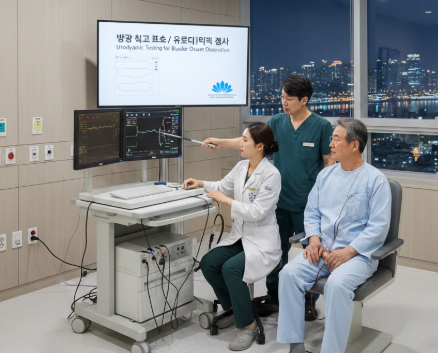Porcelain veneers are a popular solution for achieving a flawless, confident smile. But if you live with chronic health conditions such as diabetes or hypertension, you may be wondering:
“Is it safe for me to get veneers?”
The good news is that in most cases, the answer is yes—but with some important precautions. Your overall health plays a significant role in how your body responds to any dental procedure, even minimally invasive ones like veneers.
In this article, we’ll explore how chronic conditions like diabetes and high blood pressure can impact your safety, healing, and long-term success with porcelain veneers—and what you and your dentist can do to ensure a safe outcome.
✅ Understanding Porcelain Veneers: A Quick Overview
Porcelain veneers are thin, custom-made shells bonded to the front of your teeth to enhance their appearance. They can cover:
- Discoloration
- Chips and cracks
- Minor misalignment
- Gaps between teeth
- Worn enamel
The procedure typically involves minimal enamel removal, no surgery, and local anesthesia—making it a low-risk cosmetic treatment for most patients.
🩺 Veneers and Diabetes: What You Need to Know
🔬 Why Diabetes Matters in Dentistry
Diabetes—especially when not well-controlled—can affect your oral health and healing ability in several ways:
- Delayed healing of tissues
- Higher risk of infection, especially in the gums
- Increased inflammation
- Dry mouth (xerostomia), which can affect veneer bonding and comfort
- Greater risk of gum disease, which must be managed before getting veneers
✅ Safe Veneer Placement with Diabetes—When Conditions Are Right
Patients with well-managed diabetes (Type 1 or Type 2) can usually undergo cosmetic procedures like veneers without added risk. Key requirements include:
- Stable blood sugar levels
- No signs of active periodontal disease
- No unhealed oral infections
- A strong commitment to oral hygiene
🧑⚕️ Tips for Diabetic Patients Seeking Veneers
- Schedule your appointment earlier in the day when glucose levels tend to be more stable.
- Make sure your dentist is aware of your condition and medications.
- Maintain excellent control of your A1C and glucose in the weeks before treatment.
- Ask about saliva substitutes or fluoride treatments if dry mouth is an issue.
💡 Tip: Get a thorough dental cleaning and periodontal exam before your veneer consultation.
💓 Veneers and Hypertension: Are They Safe?
💥 How High Blood Pressure Affects Dental Treatment
High blood pressure (hypertension) can raise safety concerns in dental procedures for a few reasons:
- Local anesthesia with epinephrine may cause temporary spikes in blood pressure.
- Stress or anxiety during dental visits can elevate BP further.
- Poorly controlled hypertension increases the risk of bleeding or cardiac events during treatment.
✅ When Veneers Are Safe with Hypertension
If your blood pressure is controlled and regularly monitored, veneers are typically very safe. Most veneer appointments are short and minimally invasive, with no cutting or suturing involved.
🧑⚕️ Tips for Hypertensive Patients Getting Veneers
- Bring your latest blood pressure reading or take it before your appointment.
- Inform your dentist of all medications and supplements, including diuretics or beta-blockers.
- Discuss anesthesia options—your dentist may use a formulation with reduced or no epinephrine.
- Consider conscious sedation or nitrous oxide to reduce stress during the visit.
⚠️ Caution: If your BP is consistently above 180/110 mmHg, your dentist may postpone treatment until it’s better managed.
🦷 General Health Considerations for Veneers
Regardless of the specific medical condition, certain health principles apply when considering porcelain veneers:
✅ You Are Likely a Candidate If You:
- Have no active oral infections or gum disease
- Can tolerate mild dental procedures under local anesthesia
- Maintain good oral hygiene and regular dental care
- Have a stable medical history and are under care of a physician
❌ Veneers May Be Delayed or Not Recommended If You:
- Have uncontrolled diabetes or hypertension
- Are undergoing cancer treatment or immunosuppressive therapy
- Have significant gum recession or tooth mobility
- Cannot undergo routine dental exams or cleanings
🧘♂️ How to Prepare for Veneers if You Have Chronic Conditions
- Get medical clearance from your physician, especially if you take blood thinners, insulin, or have a cardiac history.
- Share your full health history with your dentist, including medications and supplements.
- Address all dental infections or gum problems before starting cosmetic treatment.
- Stick to your health routine, including glucose checks or blood pressure monitoring, leading up to your appointment.
- Ask your dentist about a customized care plan that accounts for your condition.
📅 Final Thoughts: Safe Smiles Start with Smart Planning
Living with diabetes or high blood pressure doesn’t mean you have to give up on your dream smile. With proper planning, medical coordination, and a skilled cosmetic dentist, porcelain veneers can be a safe and transformative solution.
The key? Make sure your health is well-managed and that your dental team understands your specific needs.
Don’t let a medical condition stop you from investing in your smile—just be proactive, informed, and in the care of the right professionals.




